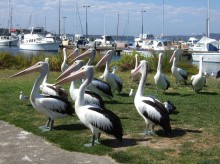 This excellent blog was written three years ago to the day on Wired In To Recovery.
This excellent blog was written three years ago to the day on Wired In To Recovery.
“I was like a tornado causing as much devastation as I possibly could in my family. But the problem was, I couldn’t even see it because all I cared about was me. I was caught up, obsessed with finding ways and means to get my next drink. When I didn’t have it, I was a nightmare to live with.
My mother felt so helpless, slowly watching her son kill himself through drink and drugs and not knowing whether she was coming or going half the time. It’s through that feeling of helplessness and frustration that the anger started to rear it’s ugly head.




